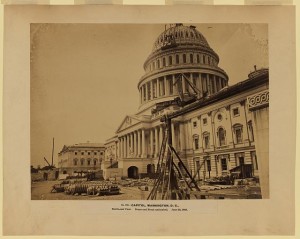
Capitol June 1863
150 years ago yesterday a big Union rally was held in the federal Capitol. Andrew Johnson made an impassioned speech with President Lincoln looking on. Green Adams, a native of the president’s old home of Kentucky, agreed that the Administration should do whatever it took to preserve the Union. He supported the Emancipation Proclamation, even though he himself was a slave owner.
From The New-York Times April 1, 1863:
OUR SPECIAL WASHINGTON DISPATCHES.; THE GREAT UNION MEETING. COMMUNICATING WITH THE ENEMY. COMPTROLLER OF THE FINANCES. EXCHANGES. QUININE. THE WAR COMMITTEE. PROVOST-MARSHALS. AN ESCAPE. PENSIONS. A SENTENCE DISAPPROVED. NEGRO REGIMENTS.
WASHINGTON, Tuesday, March 31.
It is going on to 11 o’clock at night, and the great Union meeting, which was organized at 5 in the afternoon, is yet in full tide of enthusiastic progress. Every seat in the House of Representatives was filled. The rotunda and side passages were choked, and the Senate Chamber was also full. Mayor WALLACH presided over the meeting in the Hall. The resolutions, offered by Gen. RIBB, call on the Government to prosecute the war with the utmost energy, assuring it of the people’s confidence and support, and expressing the utmost confidence in being able very soon to crush out the rebellion. The resolutions, received with the most enthusiastic favor, were frequently interrupted by applause. Every allusion to carrying on the war with vigor, and exercising severe measures to suppress treason in our midst, was especially applauded. Alderman SARGENT introduced an additional resolution, calling upon the Government to exercise arbitrary power over domestic treason, and complimenting the people of Baltimore and Gen. SCHENCK. GR[E]EN ADAMS, of Kentucky, concluded an eloquent speech with the declaration that, as a Kentuckian and a slaveholder, he contended the Government had the power to deprive traitors not only of property, “niggers” and all, but of life. [Great cheering.] And in his opinion, so far from violating the Constitution, he performed only his duty. When Gen. JACKSON had a man to hang, if he could not do so under one law, he would under another. There was no such loyalty to be found elsewhere on the earth as in Kentucky. He believed that the President had the right to do anything that he saw necessary to put down rebellion, and hoped he would exercise it. [Loud and prolonged cheering.]
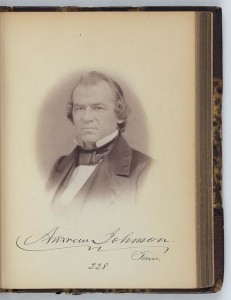
“burst of eloquence”
Admiral FOOTE, Judge CARTER, of the District Supreme Court, and HORACE MAYNARD, of Tennessee, made war speeches of the most uncompromising character, and were followed by Gov. ANDREW JOHNSON in a burst of eloquence seldom equaled in the Representatives’ Hall. He invoked an out-and-out support of the Government, and condemned all thought of compromise.
The President and Secretaries CHASE, SEWARD, BLAIR, USHER, and a very large number of Commodores and Generals and Judges were upon the platform. There never was a meeting in Washington at all to be compared with this, in numbers, respectability and enthusiasm. It has stirred every quarter of the city while it was in progress. Similar ones filled the Senate Hall and Rotunda, and made entrance into the Capitol anywhere almost impossible. The idea in all the speaking was the maintenance of the war to the end, last however long it might.
I thought the rest of the article was interesting. The Commissioner of Internal Revenue working on the tax code. General Franklin testifying on Fredericksburg and Antietam. An ingenious escape from Libby. 28,000 applications for war related pensions.
Under the stringent enforcement of the order issued recently by Gen. HEINTZELMAN, the disloyal residents of this vicinity find it almost impossible to maintain communication with their friends across the border. They have heretofore got passes beyond the lines, trusting to their familiarity with our officers stationed near their homes to enable them to run our pickets on their return. Many who have thus trusted to luck are unexpectedly shut out from their homes, readmission within the lines being made conditional upon taking the oath of allegiance, which they stubbornly refuse. Among those turned back yesterday was the widow of JACKSON, the murderer of ELLSWORTH, who resides at Centreville.
The name of Hon. E.G. SPAULDING, of Buffalo, has been mentioned, to-day, as the possible appointee to the vacant office of Comptroller of the Finances.
Arrangements are completed, for the exchange of all Union officers held by the rebels. Surg.-Gen. HAMMOND has instructed the surgeons in charge of hospitals to send to Baltimore immediately all rebel officers able to be removed, preparatory to sending them to City Point for exchange.
The day after the publication in the TIMES of the intention of the Medical Department to manufacture its own quinine, the price of that article declined 33 per cent., and within a day or two past the Department has received propositions from parties in New-York and Philadelphia, offering to furnish the drug at a reduction of 70 cents per ounce. Speculators in the article have lost heavily.
Gen. FRANKLIN, in his testimony before the War Committee to-day, respecting the battle of Fredericksburgh, denied ever having received any orders from Gen. BURNSIDE to reinforce Gen. MEADE, and substantially pronounced Gen. BURNSIDE’s testimony on that point to be untrue. He confessed that at Antietam 7,000 of his men never fired a shot, and that none of PORTER’s corps were engaged. Though a strong friend of MCCLELLAN’s, his involuntary condemnation of his conduct after that battle, in failing to pursue the enfeebled enemy, is the most damaging yet presented against that General.
The Secretary of War has been engaged to-day with Col. FRY, the Provost-Marshal General, in making the appointments of Provost-Marshals for Pennsylvania. They will probably be announced to-morrow. The Secretary has in many districts appointed officers who have been wounded in the service and honorably discharged.
Seven Union prisoners, confined in the Libby Prison, at Richmond, recently escaped from there by the following clever ruse: The small-pox having broken out in the prison, to prevent its further spread the patients, as soon as attacked, were removed, for medical treatment, to the pest-house, on the outskirts of the city. In order to get to the pest-house, which afforded a better opportunity to escape from than the prison, the men heated a wire and burned their faces in blisters, and, under pretence that they had the disease, asked to be removed to the pest-house. This was immediately done. After remaining in the hospital for a few hours, they managed to elude the vigilance of the guard and make good their escape-
The number of applications for widows and invalid pensions is enormous. Since the war began seventeen thousand of the former and eleven thousand of the latter have been received.
IMPORTANT TO PROMOTED OFFICERS.
WAR DEPARTMENT, ADJUTANT-GENERAL OFFICE, WASHINGTON, March 29.
GENERAL ORDERS NO. 70. — To answer frequent inquiries made by general and other officers as to whom they shall report when newly promoted, it is hereby announced, that unless otherwise specially ordered, they will continue on duty in their respecpective departments or armies, and will be assigned by the Commanders thereof. By command of Maj.-Gen. HALLECK.
L. THOMAS, Adj.-Gen.
The Secretary of War has disapproved of the sentence of the Court-martial on Col. NEVIN, Sixty-second New-York, that he be cashiered, and has ordered that he forthwith be released from arrest and restored to his command.
It is said that the President positively refuses for the present to grant authority to raise more negro regiments.
DISPATCHES TO THE ASSOCIATED PRESS.
WASHINGTON, Tuesday, March 31.
REVENUE DECISIONS.
The Commissioner of Internal Revenue has made the following decisions: Warrants of Attorney, accompanying mortgage checks drawn against State funds in bank, are exempt from stamp duty; pawn-brokers’ checks are liable, as agreements, to a stamp duty of five cents. Whenever the receipts of an insurance agent or broker, as compensation for services performed for or on account of the company or companies he represents, amount to the sum of $600 in any one year, he is liable to assessment for a license under the amended Excise law.
Green Adams served as a U.S. Representative from Kentucky twice – the second time (1859-1861) as a member of the Opposition Party, which was made up of pro-Union men opposed to the expansion of slavery into the territories. At the time of this story Green Adams was a federal bureaucrat, working as “Sixth Auditor of the Treasury Department from April 17, 1861, to October 26, 1864.”
![[United States Capitol, Washington, D.C. Principle floor plan, vestibule, House of Representatives, Senate Chamber, Library] (by Benjamin henry latrobe, architect 1817; LOC: LC-DIG-ppmsca-23663)](https://www.bluegrayreview.com/wp-content/uploads/2013/04/23663r.jpg)
Capitol architecture 1817

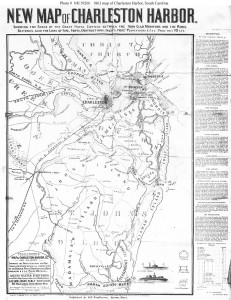
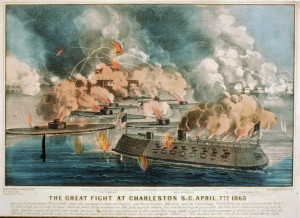
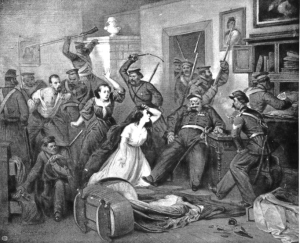
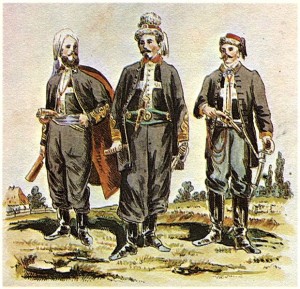
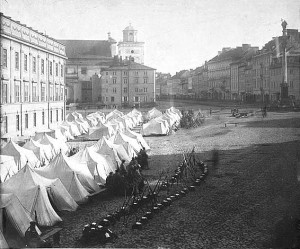
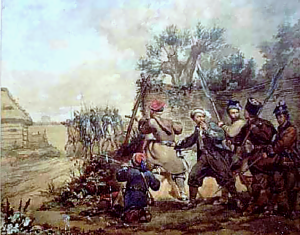
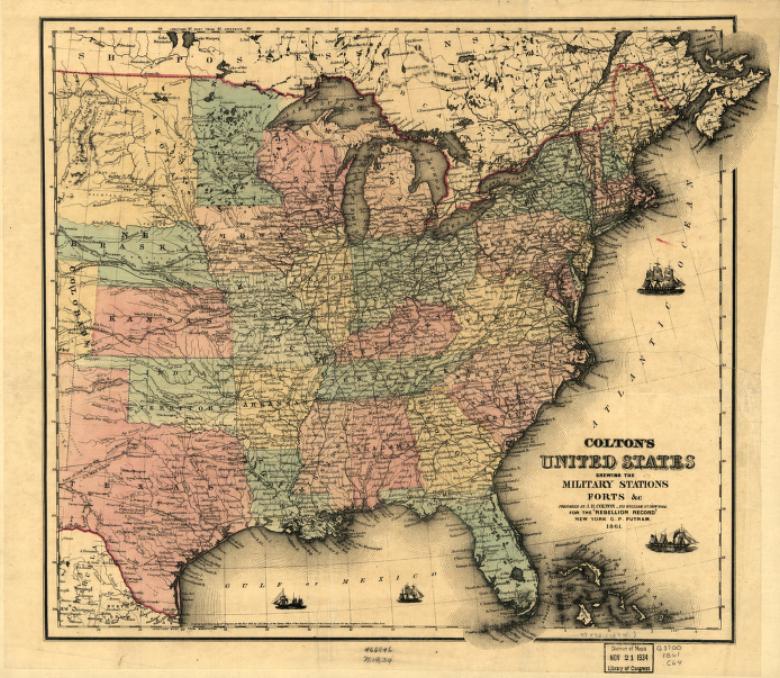
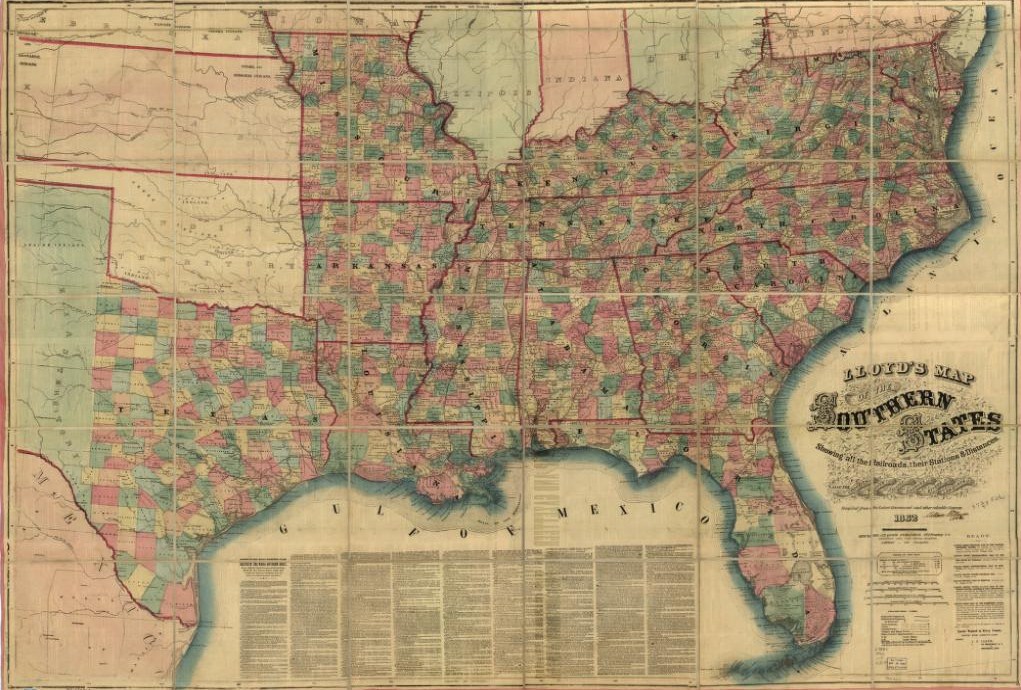
![Shows railroad lines emanating south and east of Atlanta going toward Macon and Columbus, Ga., with a notation "125 miles from Atlanta to Andersonville [Prison]." by Robert Knox Sneden](https://www.bluegrayreview.com/wp-content/uploads/2013/04/Columbus-Ga-area-257x300.jpg)
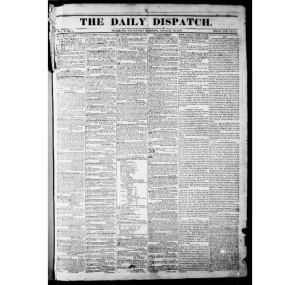
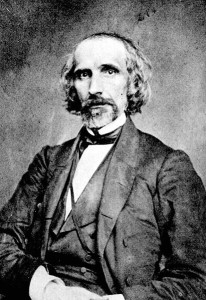
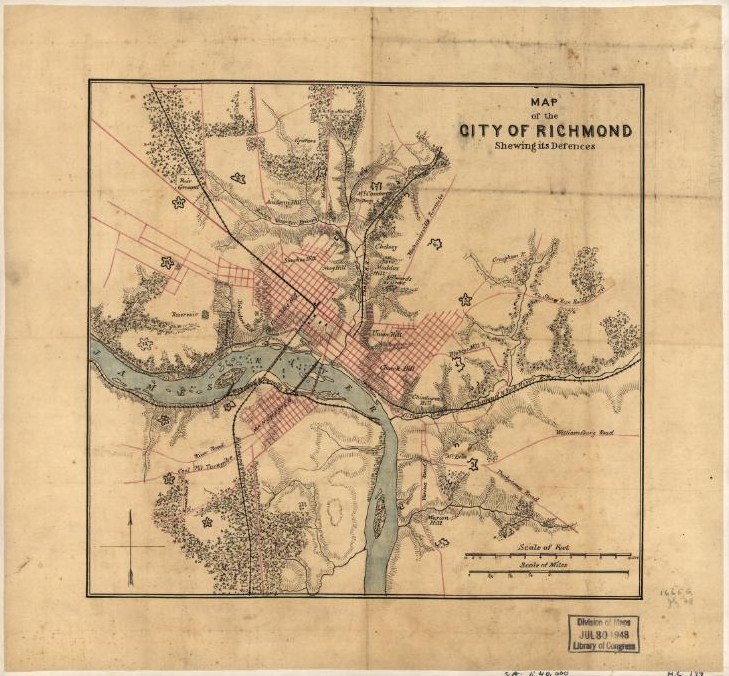


![[United States Capitol, Washington, D.C. Principle floor plan, vestibule, House of Representatives, Senate Chamber, Library] (by Benjamin henry latrobe, architect 1817; LOC: LC-DIG-ppmsca-23663)](https://www.bluegrayreview.com/wp-content/uploads/2013/04/23663r.jpg)

